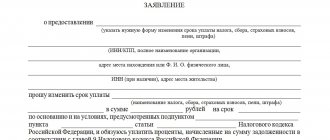Inheritance rights are one of the types of civil rights. Consequently, this right is protected by law and regulated by a number of articles. In cases where it is impossible or difficult to exercise your right to receive an inheritance through a notary’s office, the judicial authorities will come to the rescue.
The need to protect or realize inheritance rights does not arise very rarely. This is one of the most common family disputes.
Inaccessibility or inaccessibility of documents confirming the right to inheritance. Relatives' dissatisfaction with their shares. Incorrect execution of documents by the testator. Violations of the six-month deadline for entering into inheritance. This is not a complete list of problems faced by heirs.
In this article we will try to cover as many of the most common difficult situations as possible. And also tell you how to act constructively in order to prevent undesirable consequences or eliminate them.
Basis for registration of inheritance through court
What circumstances when receiving an inheritance most often make going to court inevitable? Mainly the following:
- The heirs (or heir) actually entered into an inheritance, but did not formalize it before the expiration of the legal period, and now want to legally confirm their rights to the inherited property
- Heirs cannot peacefully divide inherited property among themselves
- There are grounds for recognizing some heirs as unworthy
- The deadline for entering into an inheritance was missed for a good reason, and the current heir seeks to “return the departed train”
- The terms of the will are disputed, or the will itself turns out to be invalid
- An heir who has the right to receive an inheritance by law has difficulty proving this right (for example, he does not have documents confirming his family relationship)
- It turned out that the property rights of the testator were not registered at the time of his death
This, of course, is not an exhaustive list of reasons for going to court on inheritance issues. In practice, there are as many families as there are so many problems. But, nevertheless, the above cases are common enough to be considered typical. Therefore, we will dwell on them in more detail.
Special nuances
When entering into an inheritance in court, the successor should take into account the following nuances:
- Inheritance issues are considered through claims and special proceedings. The difference between them is significant - from the peculiarities of the judicial process to the amount of state duty charged. Claim proceedings begin with a claim by the heir (plaintiff) and imply the existence of a property dispute with other successors (defendants in the case). Special proceedings are carried out on the basis of an application by the applicant for the inheritance for recognition of a legally significant circumstance.
- Recognition of ownership of inheritance through the court in some cases is possible only after going to other competent authorities, and without success. Before submitting an application to establish a relationship, the heir must receive an official refusal from the registry office; when reinstating the deadline for accepting the property of the deceased, the plaintiff will need a written refusal from a notary.
- When seeking recognition of the fact of acceptance of the inheritance, it is important for the successor to know about the indivisibility of the share due to him. In other words, if one object or property right is accepted, he becomes the owner of the rest within the framework of what is due to him by law or by will, including the material obligations of the deceased (loans, debts from clients, etc.)
- The judge's ruling, even positive for the plaintiff, is not the final stage of accepting the inheritance. By a court decision, it becomes possible to register the property of the deceased with a notary, cancel previously issued certificates of the right to inheritance and register the divided property in Rosreestr.
- The judge's decision can be appealed by one of the parties to the proceeding, first on appeal (until the act has entered into legal force), and then on cassation (if the decision has already acquired legal significance).
Needless to say, entering into inheritance through the court is a difficult and tedious procedure that does not always lead to the expected result. Therefore, to implement it, it is very important to enlist the support of experienced lawyers, who are the specialists from the ros-nasledstvo.ru portal. You can write to them through the website’s return form and ask your first question for free, at any time and day of the week.
FREE CONSULTATIONS are available for you! If you want to solve exactly your problem, then
:
- describe your situation to a lawyer in an online chat;
- write a question in the form below;
- call Moscow and Moscow region
- call St. Petersburg and region
Save or share the link on social networks
- FREE for a lawyer!
Write your question, our lawyer will prepare an answer for FREE and call you back in 5 minutes.
By submitting data you agree to the Consent to PD processing, PD Processing Policy and User Agreement
Useful information on the topic
4
How to restore the missed deadline for accepting an inheritance
The law limits the period allotted for accepting an inheritance to 6 months from...
12
How to prove and confirm relationship with the deceased
The presence of family ties is the main condition for a calling to inheritance...
31
How to challenge a will for an apartment?
According to Article 62 of the Civil Code of the Russian Federation (Civil Code of the Russian Federation), citizens...
56
How to properly draw up and write a will
The provisions on the will are contained in the third chapter of the Civil Code of the Russian Federation. According to…
101
Heirs of the first stage
The Civil Code of the Russian Federation defines two options for inheritance: by will and...
21
Inheritance of a privatized apartment after the death of the owner by law and will
After privatization, the apartment used on the basis of a social tenancy agreement passes...
Actual acceptance of inheritance
In principle, this method of entering into inheritance rights is as legal as the standard submission of a statement of readiness to enter into an inheritance to a notary and the following steps: collecting documents, paying a fee and obtaining a state certificate of inheritance. The heir actually assumes the rights and obligations associated with the inherited property. That is:
- Pays the debt obligations of the testator
- Accepts payments from his debtors
- Manages and uses inherited property
- Ensures its safety
- Pays for his maintenance
ATTENTION! It is necessary to enter into inheritance rights in fact within the same period that is allotted for notarization of inheritance rights - 6 months from the date of death of the testator.
But the actual entry into an inheritance does not negate the need to legally formalize it. This is done through the court. The statement of claim must be accompanied by documents confirming the actual ownership and use of the inherited property. These are:
- Paid utility bills
- Receipts for receipt or payment of debt amounts
- Receipts for the purchase of car parts or materials for home or apartment repairs
- Contracts with repair workers
- Certificates from the housing authority about living in inherited living space
- And any other receipts, checks, agreements, receipts and certificates confirming that the heir fulfills all obligations and enjoys all the rights of the legal owner of the property.
ATTENTION! It is important to competently draw up a statement of claim and present as much evidence as possible. In this case, the judicial procedure will become a simple formality that does not require much hassle. A sample statement of claim can be found on the Internet or seek initial legal advice. On the Prav.io portal, a lawyer will help you draw up a claim.
But if there are other heirs of this line who are dissatisfied with the actual entry of one of the heirs into possession of a certain share of the inheritance, they can challenge the court decision. For example, demand a reduction in the share of the actual heir or his removal from inheritance altogether. In this case, you may need more serious legal assistance from an experienced lawyer who will help protect your rights in court. This is already a paid service, but it is sometimes almost impossible to win without legal support.
Arbitrage practice
The outcome of the consideration of the case for recognition of inheritance rights depends on many factors, but the decisive factor is a strong evidence base and, of course, compliance with the procedure for filing the application.
Judicial practice shows that disputes related to the division of property, establishing the fact of acceptance of inheritance and dependency at the expense of the testator are resolved more easily and quickly. Of course, if the case is not accompanied by additional complicating circumstances.
The result of proceedings to restore the term of inheritance or documents confirming relationship with the deceased is difficult to predict. Here, everything also depends on the persuasiveness of the plaintiff’s arguments, but you can significantly increase the chance of success with the help of competent representation.
Dispute between heirs
The inheritance is either divided into equal shares between heirs of the same order (if there is no will), or distributed according to the will. Quite often, this state of affairs does not suit relatives, who may feel that they were treated unfairly. They have the right to go to court and prove the validity of their claims.
When dividing the inheritance according to the law, the court can take into account not only the rights of representatives of a certain line (family ties), but also other circumstances. For example, living in the same territory with the testator, joint farming with him, the degree of assistance provided (if we are talking about an elderly testator). And, of course, the presence or absence of illegal actions against the testator or testator.
When inheriting under a will, the court provides shares to those categories of heirs who have the right to a part of the inheritance, even if they are not mentioned in the will. Specifically, minors and/or disabled heirs of the first stage. Elderly parents, small children, and a disabled spouse have the right to a mandatory share of the inheritance. It is less than they would have received in the absence of a will, but still, it is impossible to completely “disinherit” such relatives, regardless of the will of the testator.
Unworthy heirs
If one of the heirs of the queue, in the opinion of its other representatives, gives reason to consider him unworthy of receiving the inheritance, they can go to court to prove his unworthy behavior.
Unworthy behavior of an heir means:
- Actions aimed at hastening the death of the testator or other heirs
- Actions aimed at increasing one’s share to the detriment of the shares of the remaining heirs of the current order, or of the persons specified in the will
- Malicious and deliberate concealment of the facts of the existence of certain objects of inheritance or the existence of other legal heirs
- Obstruction of the execution of the will of the testator as recorded in the will (for example, concealment or forgery of the will)
- Failure to fulfill obligations to the testator during his life (for example, deprivation of parental rights to a child, evasion of paying him alimony, refusal to support elderly disabled parents)
If one or more of the above facts occurred, this may serve as a legal basis for filing a claim to declare the heir unworthy and exclude him from dividing the inheritance. The statement of claim is written according to the general rules for claims. The sample can be found and downloaded on the Internet.
ATTENTION! An unfounded statement about the unworthy behavior of a particular heir is unlikely to convince the court. Evidence required. If, for example, there was deception or threats to the testator in order to induce him to write a certain will, this can be proven by the testimony of disinterested witnesses, letters, and audio/video recordings. Documents on deprivation of parental rights or writs of execution indicating non-payment of alimony will prove evasion of the obligations to support the testator. And so on. The court will decide to recognize the heir as unworthy and remove him from inheritance only if there is convincing documentary evidence and/or testimony.
Late application for inheritance
Under normal life circumstances, the heirs usually have the six-month period specified by law to complete all the documents and receive a certificate of inheritance. But there are exceptions. If the heir can prove to the court the valid circumstances that prevented him from taking the necessary steps to enter into the inheritance on time, the court may revise the deadline. That is, increase it.
A specific list of valid reasons is not defined by law. In each case, the court makes an individual decision on whether the reason can be considered valid.
Perhaps, the heir being in the hospital, on a business trip abroad, or on a remote expedition can be considered undeniably valid reasons. But the list does not end there. A “late” heir must provide documentary evidence of the reason for his absence.
Whether the court will accept them as a valid reason depends on many factors. If he does not accept, the heir will have to come to terms with the loss of the inheritance. It will not be possible to receive an inheritance in any other way if the deadline is missed (unless the relatives in good faith transfer to the “latecomer” the part of the inheritance due to him on a voluntary basis).
There is one more mandatory condition. The claim must be filed no later than six months after the expiration of the six-month period. Simply put, if more than a year has passed since the death of the testator, nothing can be done.
ATTENTION! The practical complexity of such cases is aggravated if there are other heirs who did everything on time and have already inherited according to the law. If the court finds the reason for the violation of the deadline by one of the heirs to be valid, the procedure for distributing the inheritance should be reviewed. And other heirs may have already disposed of their shares - sold, donated, exchanged, or even died themselves and transferred the inherited property to their heirs. In practice, it is usually very difficult to return or compensate for part of already distributed shares. If the relationship between the heirs is not so close and trusting as to reach an amicable agreement, you cannot do without the help of an experienced, qualified lawyer.
Application processing time
The period for proceedings in a case of inheritance through the court is 2 months from the date of receipt of the claim in court. This requirement is reflected in Part 1 of Art. 154 Code of Civil Procedure of the Russian Federation. In exceptional circumstances, depending on the complexity of the case under consideration, the period may be extended for another month, which is reflected in Part 6 of Art. 154 Code of Civil Procedure of the Russian Federation. The decision on the extension is made by the chairman of the court, his deputy or the chairman of the judiciary, which is also reflected in Part 6 of Art. 154 Code of Civil Procedure of the Russian Federation.
Challenging or invalidating a will
The will of the testator, expressed by him in the form of a will, is the law. But it will be executed only if the will itself does not contradict legal requirements. We have already talked about the special case of the “obligatory share”, which is received by disabled and minor heirs of the first stage, regardless of the will of the testator. There are other reasons to challenge the legality of a will.
Written form (we are not talking about handwriting a will, but about fixing it on paper, as opposed to an oral expression of will). Mandatory notarization. Full legal capacity of the testator. Voluntary writing of a will without coercion, physical or psychological violence. These are all non-negotiable legal requirements. If at least one of them is violated, the will can be challenged in court.
If the court finds the will invalid, its provisions will be canceled and inheritance will occur according to the law, in the order of succession of heirs.
Expert opinion
Drawing up a claim in cases related to inheritance is complex in itself. But it is even more difficult to find and attach evidence confirming the legitimacy of the plaintiff’s claims.
Therefore, you should not rely on your own strength when resolving a difficult situation related to inheritance. The best solution is to seek qualified legal assistance. This will avoid wasting time and money and will significantly increase the chances of success when taking the case to court.
Due to frequent updates to legislation and the legal uniqueness of each situation, we recommend obtaining a free telephone consultation with a lawyer. You can ask your question by calling the hotline number 8 (800) 555-40-36 or write it in the form below.
The testator's right of ownership of the inherited property
Situations like this are not at all uncommon. For example, the testator initiated the privatization of his apartment, but did not complete the procedure and died. Or he acquired some property, but did not have time to undergo state registration of the transaction before his death. As a result, although the property actually belongs to the testator, it is not legally included in the inheritance.
This can be corrected legally. A claim should be filed to include a particular property in the inheritance. If evidence of the actual acquisition of property by the testator is presented, the court will satisfy the claim.
Which court should I go to to enter into an inheritance?
The law provides for two options for jurisdiction over controversial inheritance cases. Claims are filed:
- To the territorial court at the location of the defendant. The defendant may be an individual or legal entity. Claims are filed in this court that are related to the establishment of facts related to the right of inheritance. For example, if the subject of the claim is the fact of inheritance, confirmation of family relationships, etc.
- To the territorial court at the location of the inherited property. The jurisdiction of these courts includes division, ownership, use of property, recognition of property rights, etc. If the property objects of the inheritance are located in different places, a general claim can be filed in any locality where any of the objects is located.
State duty
When filing a claim or application in a court of general jurisdiction, you must pay a state fee, the amount of which is established by Art. 333.19 of the Tax Code of the Russian Federation.
The state duty for a property claim is calculated depending on how much the inherited share is worth:
- if its estimated value is lower than or equal to 20 thousand rubles, the duty will be 4% of the amount (minimum - 400 rubles);
- for a case of material goods less than 100 thousand rubles. you will have to pay a flat rate of 800 rubles. and 3% of the difference between the price of the property and 20 thousand rubles;
- claim at a price below 200,001 rubles. demands the recovery of 3,200 rubles. and 2% on the cost of the inheritance minus 100 thousand rubles;
- property valued at up to 1 million rubles will cost the plaintiff 5,200 rubles. and 1% of the claim amount minus 200 thousand rubles;
- inherited property more expensive than 1 million will cost 13,200 rubles. plus 0.5% of the amount over 1 million (maximum - 60 thousand rubles).
The state fee for accepting an application to establish a fact of legal significance is 300 rubles.
How to draw up a claim correctly?
An inheritance claim may contain one or more claims. For example, when submitting an application for actual inheritance (especially if there are simply no other heirs), one requirement is sufficient - to legalize inheritance rights.
And if, for example, the heirs file a claim to recognize one of them as unworthy, then it usually contains two demands: to recognize the heir as unworthy and to challenge the will in his favor. In some cases, there may be more claims.
But regardless of this, the general formal rules for writing and filing a claim remain unchanged. It must be drawn up in accordance with the requirements of the Code of Civil Procedure of the Russian Federation: in handwritten or printed form (printed on a printer), without erasures or corrections, the circumstances of the case are presented in a strict business style.
The claim must contain the following information:
- The exact and full name of the judicial authority to which the application is submitted
- Details of the plaintiff (full name, date of birth, legal and actual address of residence, contact information)
- Information about the testator (full name, date of death, last registration address)
- Information about the defendant, if any (full name, date of birth, address)
- The value of the inherited property (in its entirety or only the disputed part, depending on the subject of the claim) – “the cost of the claim”
- Title of the document: “Statement of claim for... (restoration of the inheritance period, entry into inheritance, invalidation of the will, recognition of the heir as unworthy, etc.)
- Information about the plaintiff’s inheritance rights (will, confirmation of kinship, etc.)
- Information about other heirs
- Transfer of inherited property
- Description of the circumstances that led to the application to court
- The claim or claims itself
- A link to the legal provisions justifying the filing of a claim
- List of documents attached to the application
- Date and personal signature
As for the documents that need to be attached to the statement of claim, we are talking about any documents illustrating the circumstances of the inheritance dispute:
- Copies of the plaintiff's passport
- Confirming kinship and rights to inheritance
- Evidence of a relationship with the testator
- Evidence of actual entry into inheritance rights
- Confirming the bad faith of another heir
- Proving the impossibility of complying with the period allotted for entering into inheritance rights
- Proving irregularities in the making of a will
- And others designed to confirm the correctness and validity of the plaintiff’s claims
ATTENTION! The success of claims of this type very much depends on the evidence base. If you do not fully understand what documents are important to collect and present to the court, and which of them can significantly affect the course of the case, seek professional legal help. It is important to do this before the claim is filed.
Accompanying documents are submitted in the form of copies, with the exception of the receipt for payment of the fee, which must be submitted to the court office in the original. The remaining documentary copies and copies of the statement of claim should be prepared in an amount equal to the number of interested parties (heirs), including the plaintiff. Plus one more set that the court will accept for work and keep for itself.
What to do if there are no documents?
The lack of documents significant for the trial may be perceived by the judge in different ways.
The absence of a documentary evidence base is acceptable in some cases - certificates, extracts from registers and other officially certified forms with information confirming the position of the heir, in extreme cases, can be replaced by testimony of witnesses. During the proceedings, the court may also order an examination or other activities, the results of which determine the reliability of the stated circumstances.
The documents necessary to confirm the inheritance rights of the plaintiff (applicant) cannot be replaced. The presence of a death certificate of the testator, an identity card of the successor, a will or certificates confirming the basis for succession by law is mandatory not only when registering an inheritance with a notary, but also for opening inheritance proceedings.
The exception is legal proceedings, the purpose of which is to establish a relationship with the deceased, since it is the absence of documents confirming this fact that becomes the reason for filing an application in court.
In case of damage or loss of other documents, the heir must contact the competent authorities.
To restore the death certificate of the testator, the interested person must come to the branch of the civil registry office that issued the document earlier and submit an application for the issuance of a duplicate. In this case, the authorized specialist will require the applicant to present the following documents:
- passport;
- a certificate of close relationship or marriage with the deceased, or a document confirming the objective interest of the applicant (will, acts establishing membership in the current line of inheritance by law).
When searching for a will, a potential heir just needs to visit the nearest notary office or a current notary and request the data of interest, which may be contained in the Unified Notary Information System. But the notary has the right to provide information about the existence of an act of expression of will only after the applicant presents the testator’s death certificate.
The regulations for issuing a duplicate certificate and data on the location of the will are established taking into account the current legislation, but in some cases it can put the heir in an almost hopeless situation. An example of this would be a situation where a possible successor under a will cannot find the notarized orders of the deceased, without having, at the same time, a certificate of his death. Without these papers, neither the registry office nor the notary will be able to provide him with the requested service.
There is still a solution to the problem situation. It consists of the heir performing the following actions:
- Writing an application for acceptance of an inheritance and submitting it to a notary at the place where the inheritance was opened.
- Receiving a certificate from a notary regarding the opening of inheritance proceedings.
- Providing a certificate to the civil registry office.
Based on this, the authorized civil registry office employee must satisfy the heir’s application. Otherwise, his inaction may be appealed in court, as well as the possible refusal of a notary.






